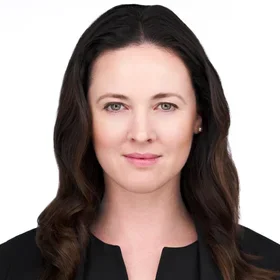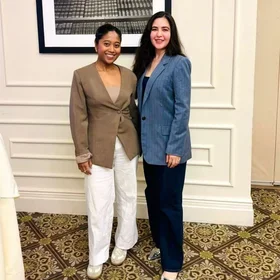Daniel Rieger, '20SPS, Information & Knowledge Strategy (IKNS), was recently promoted to Deputy Director of IT Strategy for the City of Indianapolis. He is passionate about advancing collaboration and innovation in government.
Tell us about your career, and what initially attracted you to the M.S. in Information and Knowledge Strategy program.
I’ve been working in IT project and services management for about 10 years. About a year before I started the M.S. at Columbia, I acquired my certification as a Project Management Professional from the Project Management Institute. Within a few months of that, I was promoted and tasked with building an IT Project Management Office for the City of Indianapolis, which we affectionately call Indy.
The M.S. at Columbia was unlike the other programs I was evaluating. The subject matter, faculty, and coursework sealed the deal for me. The provocative and practical subject matter of the program was unlike other programs. The faculty were top-notch, with interesting backgrounds and specialties. And the coursework was unique. It focused explicitly on leading collaboration in the modern workplace, transforming decision-making and execution, and understanding and shaping the behaviors of knowledge workers.
What type of skills did you gain, or were you able to improve on, throughout the program?
Without a doubt, the most important skills I gained revolved around leadership. Modern knowledge workers don’t need supervisors who dictate what, when, and how they should work. Modern knowledge workers need leaders who empower, align, and guide them. Now I think of leadership as a kind of partnership or a special kind of collaboration.
I learned practical models of business analytics, digital transformation, and organizational agility – and I was able to begin applying these models even as I studied them, which made my leadership team happy. The result was that I was promoted to Deputy Director of IT Strategy for the City of Indy just a few weeks after my last class ended.
I have to say that I’m more confident as a result of the M.S. program. I am now part of the Columbia community. I studied under incredible faculty and alongside amazing professionals. My cohort developed authentic relationships precisely because of the faculty’s approach to teaming and collaboration. We inspired, encouraged, and learned from each other. I will keep these relationships for the rest of my life.
How will the degree benefit you in the government space?
Now I’m prepared to make modern government a better place to work and a more effective institution. As an IT professional, I am painfully aware of the need for innovative tools and novel ways of working in the public sector. The Columbia faculty showed me how to nurture innovation and cultivate collaboration. Even before I attended Columbia, I was aware of the challenges of working in the public sector. Government is complex because of the diversity of stakeholders, their relationships to each other, and their sometimes-competing goals. The mindsets and models I learned at Columbia enable me to approach complex, dynamic, and even unpredictable organizational life with realism, positivity, and competence.
What kind of impact are you looking to make in your career?
As a person, I value human flourishing, and as a professional I get a thrill from sharing practical ideas and seeing people change how they think, work, and live. So in terms of career goals, I want to become a thought leader. For me, that looks like teaching, coaching, writing, and having plain old conversations with my colleagues. At the end of the day I always learn as much or more than I give away. Now that I’m on my organization’s leadership team, I’m better positioned than ever to become a thought leader who impacts his peers and community.
Learn more about the M.S. in Information and Knowledge Strategy.


